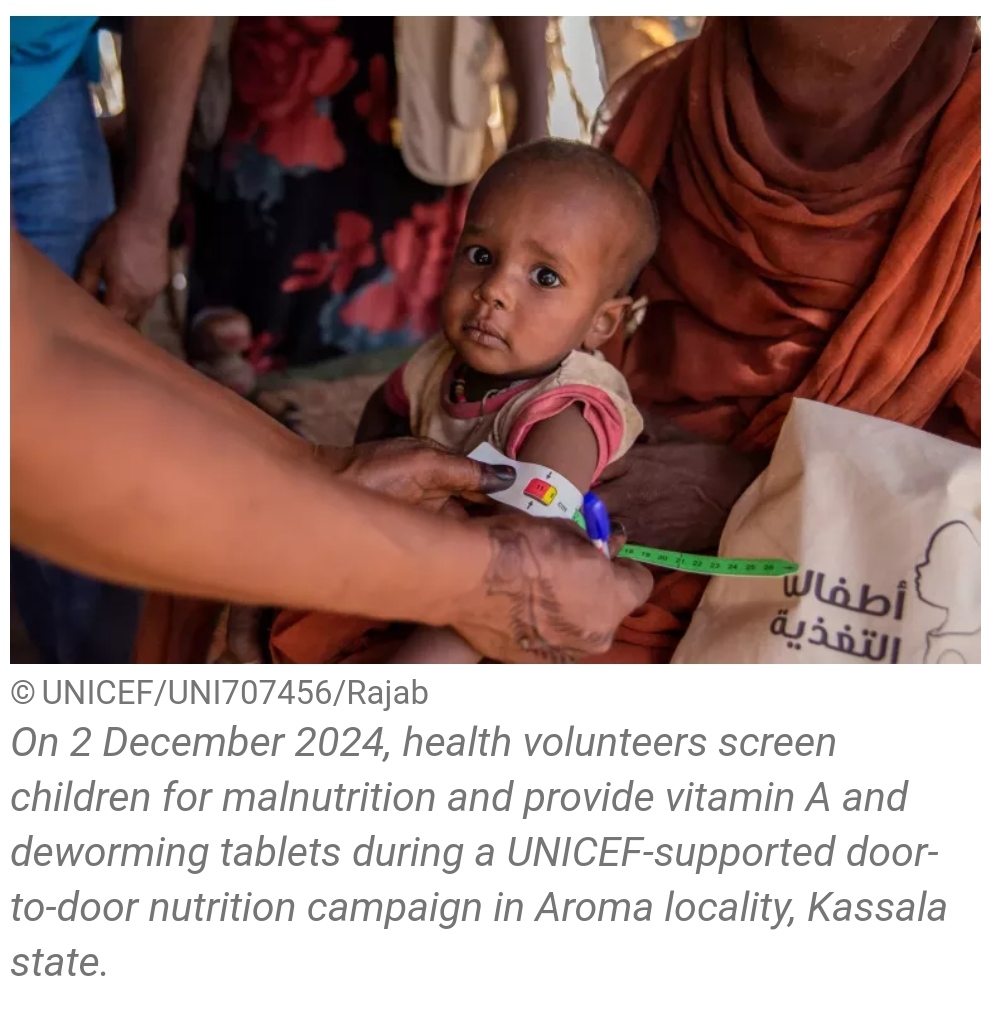Famine Spreads Across Sudan, Threatening Millions Amid Deepening Food and Nutrition Crisis.
Sudan:
The food and nutrition crisis in Sudan has escalated dramatically, with famine conditions now confirmed in several new regions, further deepening the country’s humanitarian disaster. The Food and Agriculture Organization (FAO), World Food Programme (WFP), and UNICEF have issued urgent warnings, calling for immediate action to prevent what could become one of the worst hunger crises in recent history.
Following the confirmation of famine in North Darfur’s Zamzam camp in August 2024, new reports have identified additional areas, including Abu Shouk, Al Salam camps in North Darfur, and the Western Nuba Mountains, as experiencing famine. Furthermore, famine conditions are projected to spread to five more regions—Um Kadadah, Melit, El Fasher, At Tawisha, and Al Lait—by May 2025.
The latest data reveals that over 24.6 million people—more than half of Sudan’s population—are currently facing acute food insecurity, with 8.1 million in emergency conditions and at least 638,000 people in IPC Phase 5 (Catastrophe). This marks a disturbing rise in hunger, particularly during the typical harvest season, when food availability should be at its peak.
The ongoing conflict, displacement, and restricted humanitarian access have driven food prices to unaffordable levels, leaving millions without access to basic nutrition. The situation is exacerbated by continued violence, which has disrupted markets and displaced millions of Sudanese. FAO, WFP, and UNICEF stress the need for immediate, unhindered humanitarian access to prevent further escalation, warning that famine could spread even further in 2025 without swift intervention.
Efforts to provide food assistance have been challenged by volatile conditions. While WFP has been able to deliver food aid to over 800,000 people in famine-risk areas, much of Sudan remains inaccessible due to the conflict. FAO is scaling up emergency agricultural interventions to enable local food production, and UNICEF is expanding its nutrition programs to address severe malnutrition, particularly among children.
The agencies are calling on the international community to prioritize funding for humanitarian efforts and to pressure all parties involved in the conflict to allow unrestricted access to affected areas. Immediate action is crucial to save lives and prevent Sudan’s crisis from worsening.



